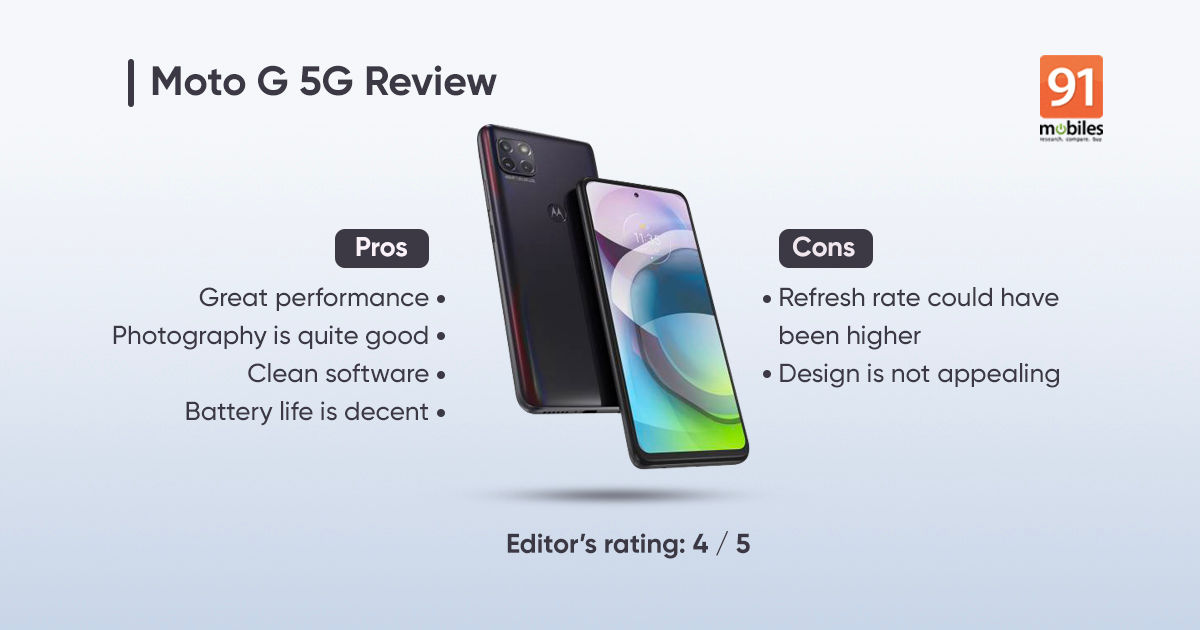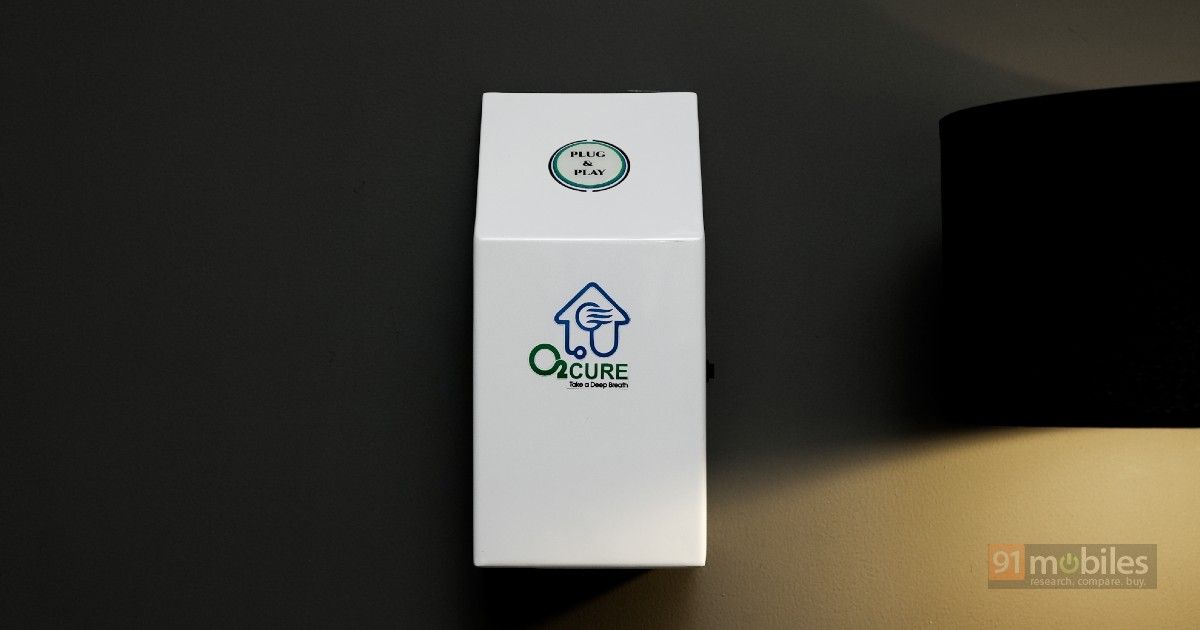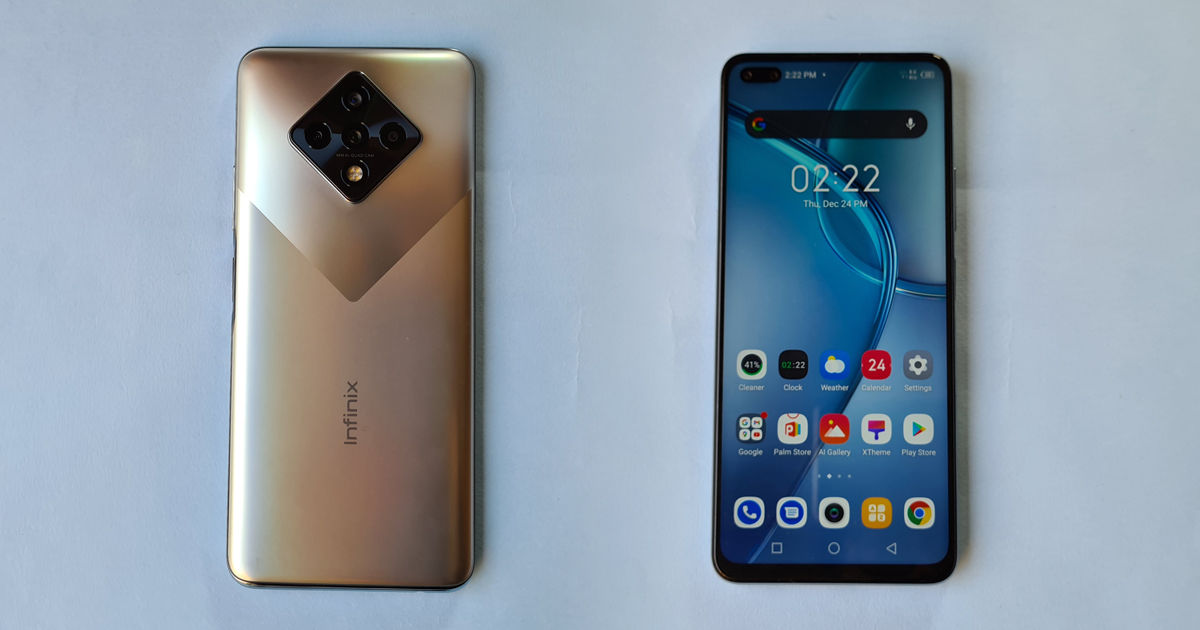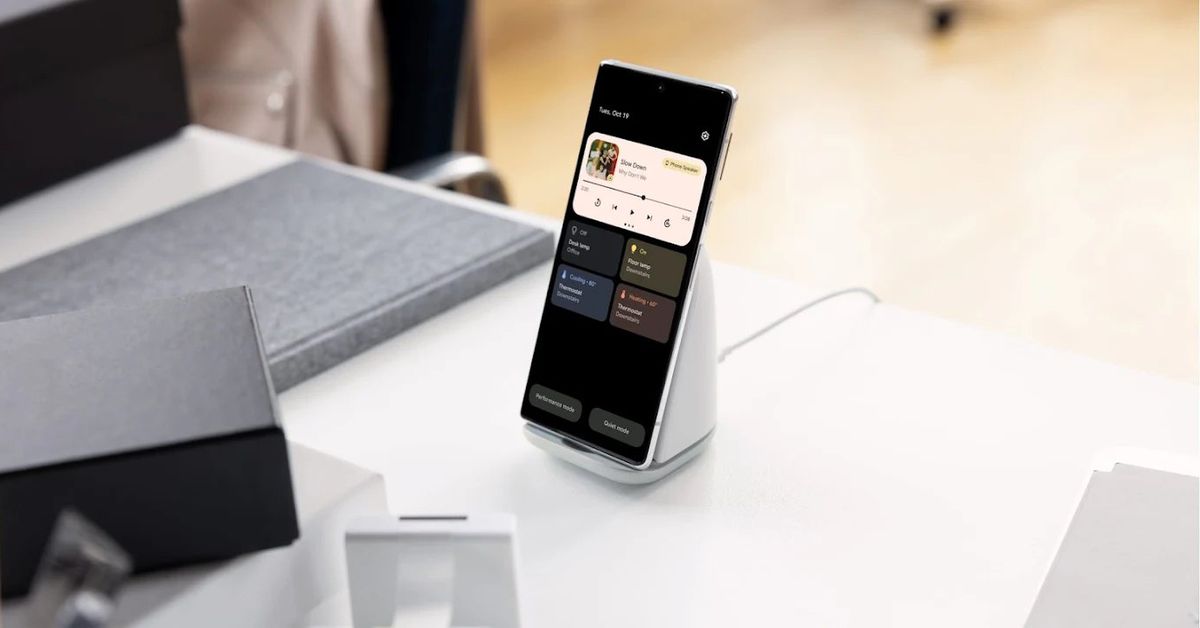iQOO 9 Pro review: a valiant effort

To say that iQOO made a splash in the Indian smartphone market last year would be a bit of an understatement. Not only did the brand offer compelling, well-rounded handsets in the affordable segment, but the company’s flagship killers spared no expense in the performance department, and brought a handful of segment-first features to the table too.
Given iQOO’s pedigree to squeeze every ounce of value out of its mid-range offerings, I couldn’t help but wonder what the company could do in the premium segment. Enter, the iQOO 9 Pro, the brand’s grandest smartphone to date. The device was recently launched in India and is the first phone in the country to feature Qualcomm’s Snapdragon 8 Gen 1 mobile platform. I managed to get my hands on a unit and here’s what I make of it.
Table of Contents
Verdict
The iQOO 9 Pro is the first smartphone from the company in the premium space. For the price, the device gets a lot right, however, lacks some notable features that would’ve otherwise assured the phone a place amidst the best flagship phones in the country.
Design
iQOO has a penchant for making good-looking phones and the brand’s latest contender looks like a million dollars too. The smartphone has been constructed in parts using glass and metal and the handset’s design exudes elegance. The back of the phone, for instance, features a ginormous camera bump which, for some, could be too flashy or over the top. However, I find the contrast between the camera module and the phone’s otherwise white back quite appealing. A fringe benefit of the same is that the device doesn’t wobble on a flat surface either, which is great.
That’s not all, as the phone comes draped in the iconic BMW colourway which debuted with the iQOO 7 Legend (review). However, this time around, the back of the phone features a subtle carbon fibre pattern, which further accentuates the iQOO 9 Pro’s good looks. What’s more, the bundled case is a spitting image of the phone’s design, thereby allowing users to flaunt the smartphone whilst keeping it safe from accidental drops at the same time.
Unsurprisingly, the iQOO 9 Pro weighs a good chunk and the device tips the scales at 209.8 grams. Thankfully, the smartphone doesn’t feel top-heavy. Furthermore, the 9 Pro’s curved screen lends the device a sleek appearance too. Be that as it may, the iQOO 9 Pro isn’t one-hand friendly, which can be accredited to the device’s relatively wide frame. Adding to the list of cons, the iQOO 9 Pro isn’t IP rated either, so you should exercise caution when using the phone near a body of water or your bathroom.
On the bright side, the iQOO 9 Pro features the fastest in-display fingerprint sensor I’ve seen on any phone to date. To wit, the device ships with a 3D ultrasonic fingerprint sensor with a ginormous touch surface that maps around 11 times more area on the screen compared to the iQOO 7. As a result, the scanner can register your fingerprint in less than a second, which is mind-boggling, to say the least. You can refer to the video attached below and see for yourselves but rest assured, the unit can unlock the phone in the blink of an eye. I should also add that the phone’s facial recognition tech is equally snappy, so you can use it to get into your home screen as well.
Moving on, the iQOO 9 Pro doesn’t ship with a headphone jack, which is a bummer. What’s on offer, however, is a stereo speaker setup that gets reasonably loud for consuming media on the fly. And, if you are constantly jumping from one group chat to the next, then you’ll greatly appreciate the iQOO 9 Pro’s tight haptics too.
Display
As prefaced previously, the iQOO 9 Pro ships with a curved 6.78-inch panel that offers 2K resolution and is backed by LTPO AMOLED technology. The screen offers an adaptive refresh rate of 120Hz, and a touch sampling rate of 300Hz as well, making it extremely fluid and snappy for everyday use. Be that as it may, a lot of folks tend to be on the fence about a phone with a curved screen, and for good reason. After all, curved displays seldom offer good palm rejection and can be quite expensive to repair too. Thankfully, the iQOO 9 Pro’s screen doesn’t pick up on unintended touches and the screen is layered with Schott Xensation UP protective layering as well, which should safeguard the panel from accidental drops to a certain degree.
During my time with the phone, I revelled in the phone’s 2K screen which exhibited crisp visuals and excellent viewing angles. What’s more, I was more than content with the panel’s peak brightness levels too and at 1,500 nits, the display offered excellent sunlight legibility. That said, much like its predecessors, the iQOO 9 Pro cannot relay HDR media from OTT services like Netflix, which is a bummer, especially when you factor in the handset’s steep MRP. What’s more, users with a keen eye for detail will be able to spot instances of colour-banding around the display’s curved edges too. Consequently, while the iQOO 9 Pro’s screen has all the makings of a flagship-grade panel, it still has ways to go before it can compete with the displays on say, the upcoming Galaxy S22 Ultra or iPhone 13 Pro (review).
On the bright side, the iQOO 9 Pro utilises the company’s Intelligent Display chip that debuted with the iQOO 7 Legend. To cut a long story short, the chip allows the smartphone to leverage frame rate interpolation in select titles like BGMI and CoD Mobile. The iQOO 9 Pro, for instance, can add frames in BGMI, and correspondingly, gamers can leverage up to 90FPS with the title set to run on the Extreme FPS preset. Having said that, I didn’t notice any stark difference with the feature enabled. To wit, panning left or right whilst aiming down the sights did feel a tad smoother, however, the difference wasn’t night and day. As such, gamers should keep an eye out for the iQOO 9, which doesn’t just ship with the Intelligent display chip, but also utilises a pressure-sensitive screen that can map in-game commands to a 3D or force touch of sorts.
Cameras
The iQOO 9 Pro isn’t just a performance-fiend – the device makes for a good camera phone too. Specs-wise, the handset ships with a 50MP GN5 Gimbal camera that works alongside a 50MP, 150-degrees Fish Eye ultrawide angle sensor, and a 16MP portrait lens. For selfies, the smartphone gets a 16MP shooter up front.
Now, seeing how the iQOO 9 Pro is an uber-premium phone, it made sense to test its mettle against last year’s camera champ – the Samsung Galaxy S21 Ultra (review). Right off the bat, I stumbled upon a couple of issues with the 9 Pro’s images. For one, the handset introduced a lot of noise in the frame, even when clicking images under the sun. Furthermore, the photos seemed a tad oversharpened at a closer crop.
As an example, if you look at the first comparison shot of my apartment complex, you’ll notice that the lawn benches, as well as the stoned footpath, appear sharper on the S21 Ultra’s shot. Furthermore, unlike the iQOO 9 Pro’s image, the S21 Ultra’s composition has kept noise to a minimum, which is evident if you zoom into the flower pots adjacent to the bench.
Similarly, in this next comparison shot, you’ll notice that the iQOO 9 Pro’s image has glossed over the details around the complex’s backup generator. In fact, the generator, as well as the blue tarp covering it appear significantly sharper on the S21 Ultra’s photo. What’s more, Samsung’s offering has exposed the darker bits of the scene better too.
Don’t get me wrong, the iQOO 9 Pro’s main camera isn’t a bad performer. In fact, most users won’t notice the difference in the images unless they zoom into the frame considerably. Still, the iQOO 9 Pro’s main sensor has ways to go before it can hold a candle to the best the industry has to offer.
The scenery remains unchanged in the zoom department too. Not only does the S21 Ultra offer a more versatile set of telephoto sensors, but the handset snaps more appealing photos at 3x zoom as well. On the flip side, the iQOO 9 Pro’s 2.5x optically zoomed photos, while good, sway in the favour of a contrast-y look. As an example, if you pan your attention to the slider attached above then here, the bark of the tree appears darkened in the iQOO 9 Pro’s shot. On the other hand, the S21 Ultra captures the scene more authentically.
The same is true for close-ups snapped by the two phones as well. To wit, both the phones output extremely detailed closeups, however, the colours appear more natural in the S21 Ultra’s compositions. That said, I noticed that the iQOO 9 Pro allowed me to edge closer to the subject and the handset latched on to the focus quicker too. What’s more, the device employs a fisheye wide-angle lens with a resounding 150-degree FoV. The company has even bundled a bunch of cool effects with the phone, including a crystal ball and asteroid effect that will undoubtedly get a photographers’ creative juices flowing.
The lowlight photos from the phone look stellar, too. In fact, with the dedicated night mode utility enabled, the iQOO 9 Pro can squeeze out every ounce of information from a scene without introducing too much noise in the frame. Take a look at the slider attached above and let us know your thoughts about the phone’s nighttime photography in the comments below.
It goes without saying that the iQOO 9 Pro can shoot superbly stabilised clips too, thanks in no small part to its 5-axis gimbal camera. I did test the footage against the S21 Ultra and sure enough, the output from the two phones was at par. Rest assured, the iQOO 9 Pro doesn’t just make for a decent camera phone, but it’s an enticing option for videographers too.
Performance, Software, and Battery Life
The iQOO 9 Pro is the first phone in the country to feature Qualcomm’s Snapdragon 8 Gen 1 mobile platform. The SoC employs a 4nm fabrication process and utilises speedy LPDDR5 memory as well as UFS 3.1 storage. Unsurprisingly, the iQOO 9 Pro is the fastest Android phone at the moment, and it shows. Take synthetic benchmarks, for instance and here, the smartphone yielded never-seen-before numbers, securing 9,47,666 points in Antutu and 1,216 in GeekBench’s single-core tests. In contrast, the Snapdragon 888+ backed ASUS ROG Phone 5S (review) managed to secure 8,18,582 and 1,127 points respectively.
Turn the page over to gaming and you’ll find similarly remarkable results, with the handset running titles like CoD Mobile, BGMI, PUBG: New State, and Dead By Daylight at the max FPS and graphics settings. To be clear, the handset’s performance isn’t leagues ahead of its Snapdragon 888+ / 888 brethren. That said, the phone should offer better longevity to buyers.
I should also add that, unlike most high-end phones, the iQOO 9 Pro keeps thermals in check too. To wit, the handset doesn’t heat up all that much, and that’s despite playing games on the phone for hours on end. To be clear, the back of the phone does get slightly warm but that is to be expected from a high-end SoC. Regardless, the chassis’ rising temps didn’t contribute to any thermal throttling. In fact, in our CPU throttling test, the smartphone throttled to just 70 percent of its peak performance, which is an acceptable result.
As for software, the device boots FunTouch OS v12 on top of Android 12. The custom skin offers a near-stock interface and ships with oodles of customisation features, albeit is riddled with bloatware. On the bright side, the utility offers enhanced privacy features and lets users know if an app is accessing the phone’s camera or microphone by means of an indicator on the status bar. As for updates, iQOO guarantees two years of system upgrades and three years of security patches with the iQOO 9 Pro.
The iQOO 9 Pro ships with a 4,700mAh battery which charges rapidly at 120W (wired) and 50W (wireless) respectively. Now, the battery backup will vary immensely based on how you’ve set up the phone. For instance, the device managed to churn out a screen on time of around five hours with moderate usage. Do note that I had set the display to refresh at 120Hz, and the screen’s resolution was locked at 2K as well. Of course, the battery would dip much quicker when I was playing games on the phone. On the other hand, you might get more mileage out of the cell should you use the phone with adaptive refresh rate enabled and the display set to Full HD resolution. That’s not all, as the phone charges rather quickly too and I could top up the device completely in just 25 minutes, which is nuts.
Final Verdict
The iQOO 9 Pro starts at Rs 64,990 for the 8GB RAM variant and for the price, gets a couple of things right. For one, the device offers a stunning design that has been mated to an equally captivating display. What’s more, the handset is a gamer’s delight and performs admirably too. That said, it’s hard to turn a blind eye to the smartphone’s shortcomings, given its steep pricing. To wit, the device cannot relay HDR media from OTT services like Netflix.
Furthermore, the handset doesn’t come with any IP rating either, which is a bummer. Lest I forget, the iQOO 9 Pro’s main camera, while good, could do with some tweaks as well. Provided you can live with the drawbacks – and there aren’t many, to begin with – the iQOO 9 Pro will serve you well over the years. However, if you want the most bang for your bucks, I’d suggest you sit on your hands for a bit as there will be a slurry of high-end phones hitting the shelves soon.
Editor’s rating: 3.5 / 5
Pros:
- Stunning design
- Captivating display
- Excellent performer
- Charges stupendously fast
Cons:
- No IP rating
- Cannot relay HDR media via Netflix
- Lots of bloatware







